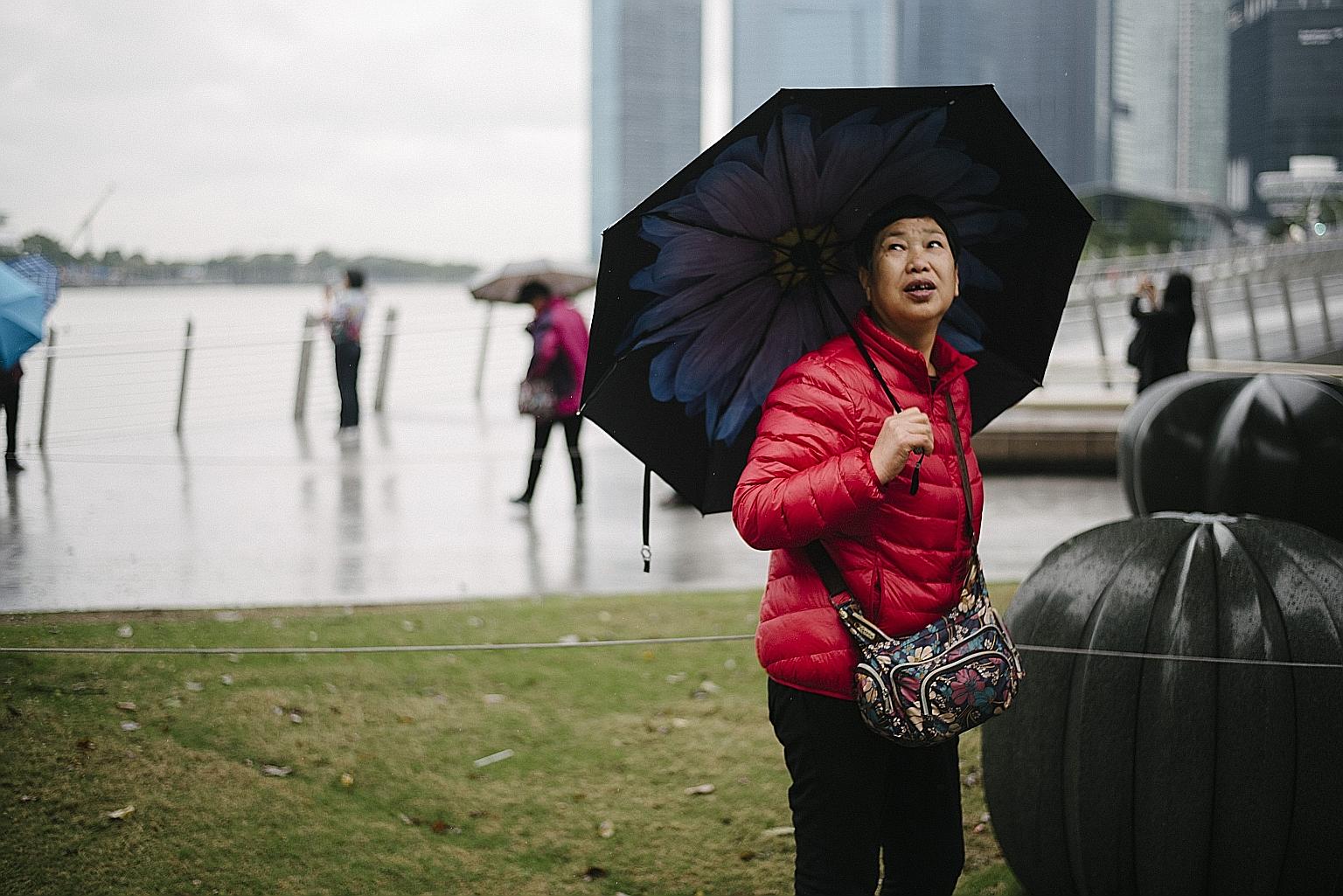Last week's cool spell was Singapore's longest in a decade
Sign up now: Get ST's newsletters delivered to your inbox

Last week's monsoon surge led to five days of cool but rainy weather, prompting some people to break out their winter wear.
ST PHOTO: ALVIN HO
Follow topic:
The cool spell experienced in the Republic last week was the longest here in at least a decade, records from the Meteorological Service Singapore (MSS) show.
"In the last 10 years, there was no cold spell of five days or more with minimum temperatures between 21 deg C and 22 deg C," the MSS spokesman told The Straits Times yesterday. "Over this period, most monsoon surges that affect Singapore are of short duration, lasting two to three days."
The five days of cool weather, which lasted from Wednesday to Sunday, were a result of a monsoon surge. These surges, which are common in Singapore between December and March, are sudden increases in wind speed that cause cold air in the Northern Hemisphere to surge southwards into the South China Sea.
As the cool air moves south, it warms and gathers moisture, resulting in rain over the equatorial region, including in Singapore.
Associate Professor Koh Tieh Yong, a climate scientist from the Singapore University of Social Sciences (SUSS), said the cool temperatures last week were due to evaporating rainfall and the formation of rain clouds which blocked off sunlight for several consecutive days. "Rain falling through the air evaporates at the same time, taking away heat almost continually," Prof Koh said.
Last week's surge led to five days of cool but rainy weather, prompting some people to break out their winter wear.
Satellite images showed that wind speeds picked up significantly last Wednesday as temperatures in Singapore fell to 22.8 deg C. The surge continued until Sunday, when temperatures in Jurong West and Admiralty dropped to a low of 21.2 deg C - the lowest temperature recorded in Singapore since 2016.
The mean daily temperature range for January is between 24 deg C and 30 deg C, according to the MSS' long-term climate records dating from 1982.
Assistant Professor Winston Chow of the National University of Singapore's geography department said low temperatures of between 21 deg C and 22 deg C were not unusual for the less developed parts of Singapore at night during this period.
"But given that the usual daytime maximum temperatures in January are closer to 30 deg C, the persistently low daytime maximum temperatures during the cold spell were extreme," Prof Chow added.
The MSS spokesman said such extreme weather could become more frequent due to climate change.
Projections for 2100 made by MSS' Centre for Climate Research Singapore show there could be more rain from cold surges during the north-east monsoon season.
"This indicates a possibility of more intense surges with higher risk of extreme weather," the MSS spokesman said. Experts have warned that more extreme weather is on the cards for Singapore as the world warms. This includes heatwaves, prolonged dry spells and periods of more intense rainfall.
SUSS' Prof Koh noted that global average surface temperatures are climbing by about 0.1 deg C per decade. In a warming world, periods of more intense and prolonged rainfall would also cause cooling, although the resultant temperature may be higher than what is being experienced today.
But extreme cold events are classified according to the rarity of occurrence, and not by the absolute temperature reached.
Prof Koh added: "So, if similarly low temperatures occur again in 50 years' time, they would be considered extreme cold events."

